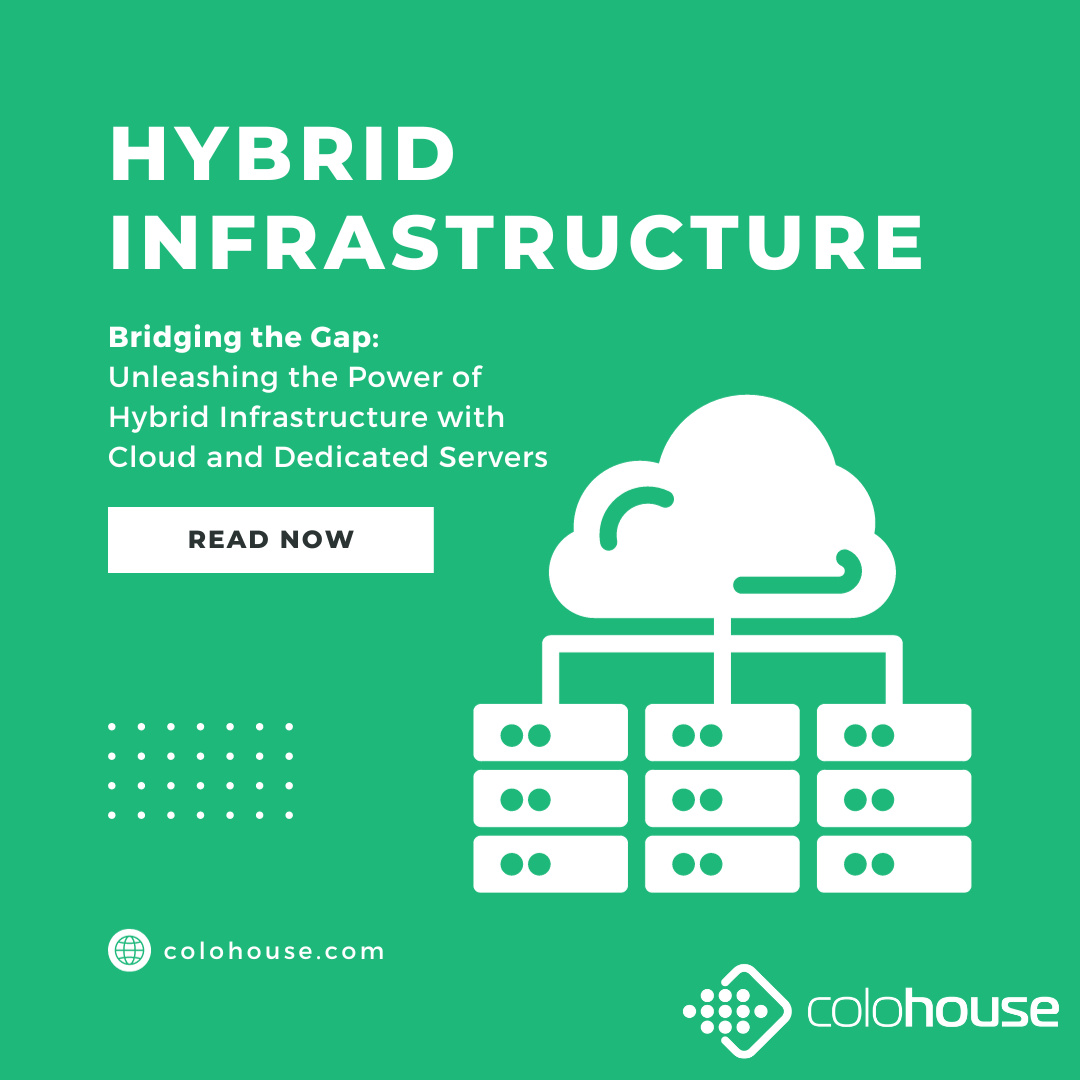In the dynamic realm of IT infrastructure, companies increasingly recognize the need for a flexible and efficient approach to meet their diverse business requirements. The combined solutions – cloud computing and dedicated servers – present a compelling business case, enabling organizations to harness the benefits of both worlds. This blog explores the advantages of adopting a hybrid infrastructure seamlessly integrating cloud services and dedicated servers.
Understanding the Hybrid Infrastructure Model:
- Cloud Computing: Cloud computing offers on-demand access to a shared pool of computing resources, including virtual machines, storage, and applications. It is known for its scalability, pay-as-you-go pricing, and the ability to offload infrastructure management to cloud service providers.
- Dedicated Servers: Dedicated servers involve leasing physical servers exclusively for a single client. These servers provide dedicated resources and greater control over configurations, making them ideal for performance-critical applications and workloads.
The Power of Hybrid Infrastructure:
1. Scalability and Flexibility:
One of the key benefits of a hybrid infrastructure is the ability to scale dynamically. Cloud services excel in providing scalable resources on demand, while dedicated servers offer a stable and predictable environment. This combination allows companies to adjust their infrastructure in response to varying workloads and business needs.
2. Optimized Performance:
Dedicated servers are renowned for their raw power and performance, making them suitable for resource-intensive applications. By integrating dedicated servers with cloud services, companies can achieve an optimized performance profile. Critical workloads can run on dedicated servers, while less demanding tasks leverage the scalability of the cloud.
3. Cost Optimization:
The hybrid model enables companies to strike a balance between cost efficiency and performance. Cloud services provide a cost-effective solution for variable workloads, while dedicated servers offer a fixed-cost model for consistent, high-performance requirements. This flexibility ensures that organizations only pay for the resources they need.
4. Enhanced Security and Compliance:
Security is a top priority for businesses, especially those handling sensitive data. Dedicated servers provide a dedicated and isolated environment, enhancing security. This complements the security features offered by reputable cloud providers. For industries with stringent compliance requirements, a hybrid approach allows organizations to design a customized security strategy.
5. Data Redundancy and Disaster Recovery:
A hybrid infrastructure facilitates robust data redundancy and disaster recovery strategies. Critical data and applications can be replicated across both cloud and dedicated servers in geographically diverse locations. This ensures business continuity in the face of unforeseen events or outages.
6. Customization to Meet Specific Needs:
Different business units within a company may have varied infrastructure requirements. A hybrid approach allows organizations to tailor their setup to meet specific needs. Whether it’s custom configurations, compliance requirements, or performance optimizations, the flexibility of a hybrid infrastructure accommodates diverse demands.
As businesses navigate the complexities of the digital landscape, the fusion of cloud computing and dedicated servers emerges as a strategic choice for a versatile and high-performing infrastructure. By embracing the benefits of both models, organizations can achieve a harmonious balance between scalability, cost efficiency, and performance. The hybrid infrastructure paves the way for innovation, adaptability, and resilience, positioning companies to thrive in a rapidly evolving technological landscape.














